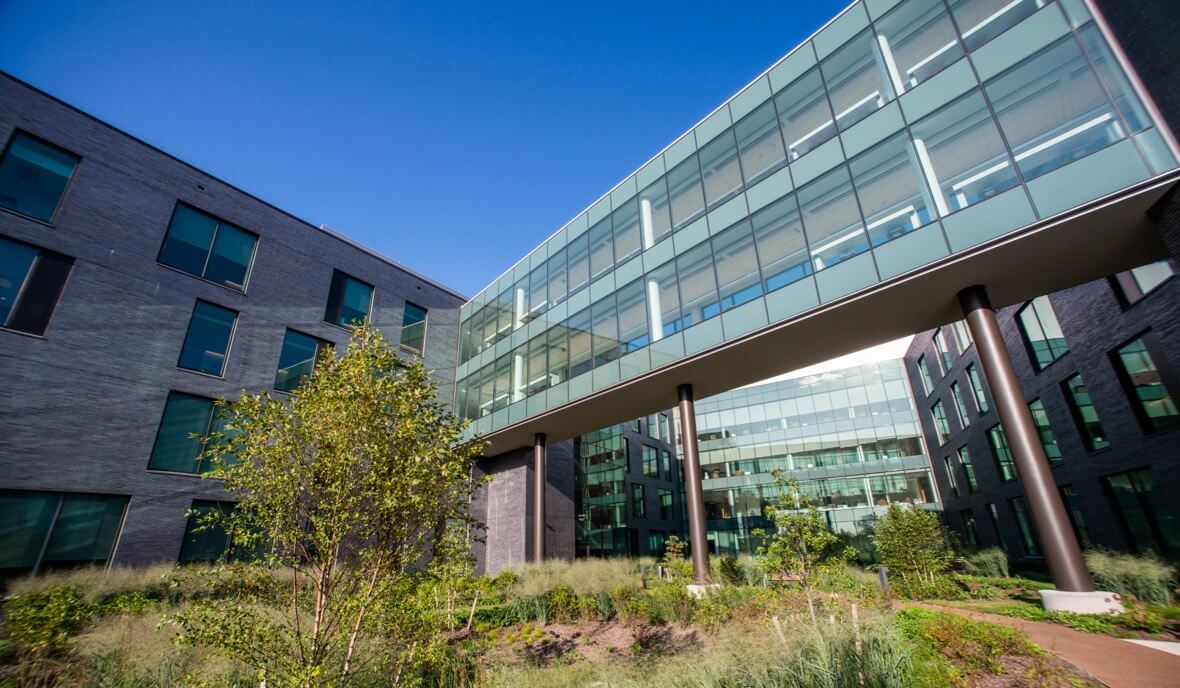Penn Medicine Radnor’s new facility opened in 2020 during the height of the pandemic—a four-story, state-of-the-art, outpatient medical facility designed entirely around patient needs.
The center was created with how patients use medical services in mind by grouping together clinicians by the type of condition they treat. This design encourages deeper collaboration among specialists and, perhaps more importantly, offers easier access for patients who often need to visit multiple offices in a single visit. For example, a patient can see a primary care physician, consult with a specialist, complete lab work and get radiology services, all in one convenient location.
At the Breast Center of Excellence at Penn Medicine Radnor, patients get greater access to screenings, imaging, treatments and supportive care. From getting a mammogram to surgery, the Breast Center of Excellence brings together all modalities of breast care: radiology, diagnosis, treatment, surgery and follow-up.
The Center also offers intraoperative ultrasound with 3-D capability that allows for quick margin assessments in the operating room. This reduces the number of times a patient might need to return to the facility after surgery.
"It’s a difficult time for patients and the best thing we can do is provide as many resources and expertise as we can to facilitate their cancer care."
Alina M. Mateo, MD, MS, Breast Surgeon, Penn Medicine Radnor.
Other new equipment includes the Halcyon machine, which allows for rapid and targeted radiation treatment (10-15 minutes) for breast cancer patients. The Halcyon machine also can take daily images of patients with mini-CAT scans to help to target radiation even further, which protects and spares surrounding healthy tissue.
The close collaboration among cross-sectional teams allows for improved outcomes for breast cancer patients and a smoother, less stressful process for patients from testing to follow-up.
"It’s a difficult time for patients and the best thing we can do is provide as many resources and expertise as we can to facilitate their cancer care," says Alina M. Mateo, MD, MS, Breast Surgeon, Penn Medicine Radnor.





 Penn Medicine Abramson Cancer Center Locations
Penn Medicine Abramson Cancer Center Locations
 Penn Cancer Network Locations
Penn Cancer Network Locations
 PCN Affiliate Practices
PCN Affiliate Practices


